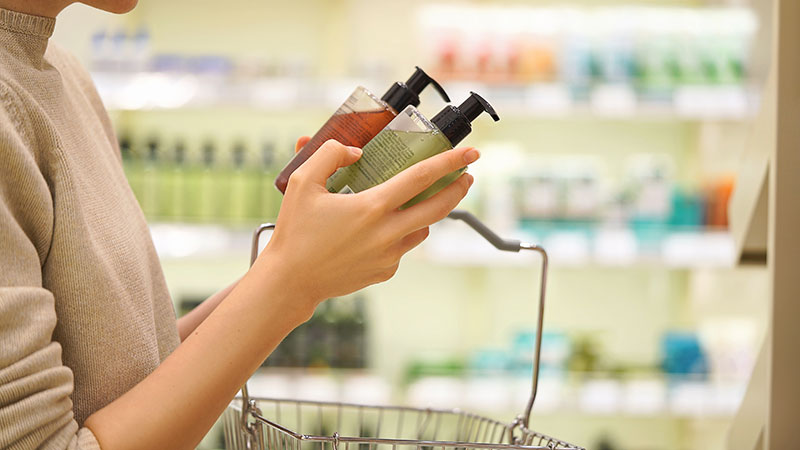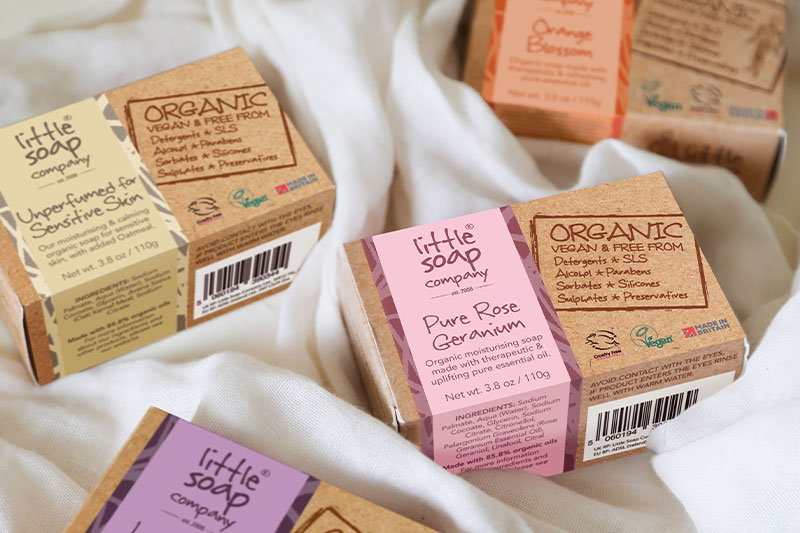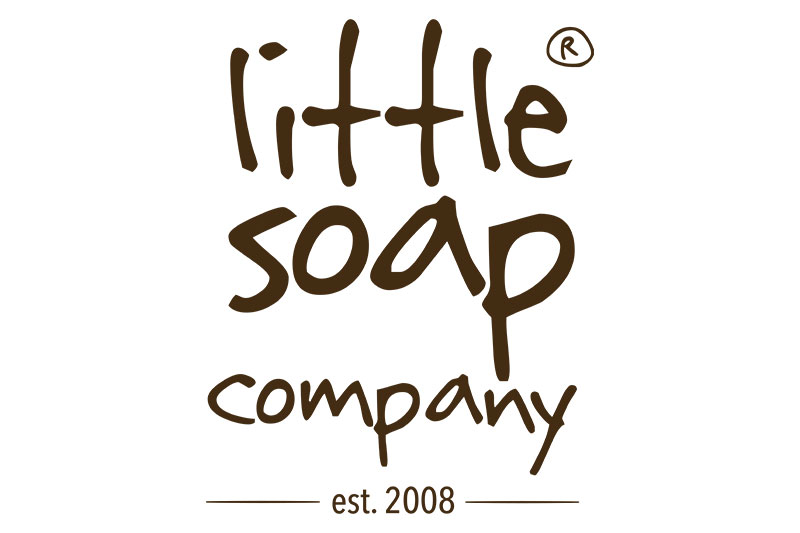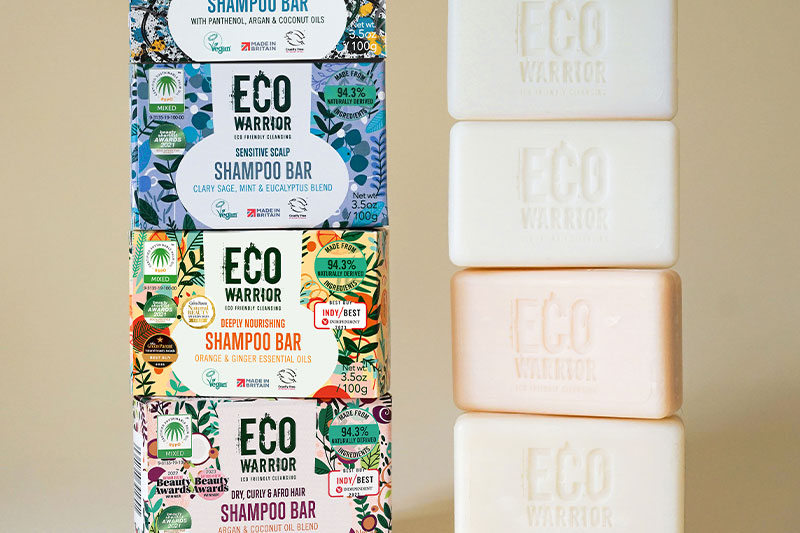The Vegan Society recently ran a survey* with product intelligence platform Vypr which revealed insightful information about what consumers are really looking for — 68% of British shoppers trust the Vegan Trademark more than self-declared vegan logos. And with 60% saying they’d never buy from a brand again if they discovered a product had been falsely labelled as vegan, it’s clear: trust, once broken, is difficult to rebuild.
The Vegan Trademark is an internationally recognised vegan product certification, established in 1990 by The Vegan Society. It has been helping make vegan products more accessible ever since, with over 70,000 certified vegan products across the world.
The illusion of self-certification
A self-declaring or self-certifying vegan product is one where the manufacturer or brand themselves make the claim that the product is vegan without having it verified or certified by an independent third-party vegan certification. At first glance, self-certification can appear to be a quick win for brands.
It saves the time, cost and complexity of going through the rigorous certification process that requires in-depth knowledge of their products and supply chain. But without independent oversight, the risk is enormous. In practice, “self-certifying” means a brand decides for itself whether its products meet vegan standards without external verification or supply chain scrutiny and without any legal definition of the term ‘vegan’. This can be tricky to navigate, especially for brands who didn’t traditionally make vegan products.
That lack of rigorous guidance can lead to serious oversights. Hidden animal by-products, testing loopholes or incomplete supply chain transparency can all undermine the integrity of a claim. Consumers can tell the difference and they’re willing to scrutinise and turn away from vague, unverified claims.
Consumer Confidence

Today’s shoppers are more informed, yet more confused than ever. Nearly half (42%) admit they aren’t confident in spotting animal-derived ingredients on labels. A similar number know animal testing still occurs but are unsure which brands are involved. Within that uncertainty, third-party verification provides a much-needed beacon of clarity.
According to The Vegan Society’s research, 53% of consumers react negatively to brands using their own vegan logos rather than recognised certification. This isn’t just a visual preference it’s a reflection of consumer psychology. It’s clear that people want brands to be held accountable by someone other than themselves.
They want reassurance that “vegan” means the same thing everywhere. Without a legal definition The Vegan Society is the authority on veganism as the organisation that coined the term ‘vegan’ in 1944 and has been certifying products as vegan to the strictest standards since 1990.
Zero margin for error

When it comes to vegan claims, consumers are firm. 60% say they would never buy from a brand again if they discovered a product had been mislabelled as vegan. Another 71% said their perception of that brand would turn negative.
The language from shoppers themselves is striking:
- “I would not trust that brand again.”
- “If I can’t trust it, I won’t buy from it.”
- “Even though I’m not vegan, I’d avoid buying anything from them for giving a false claim.”
For beauty brands competing in the cosmetics marketplace, trust lost is almost impossible to regain.
Certification as a business imperative

Vegan certification in beauty isn’t just for vegan shoppers, it’s fast becoming a signal of integrity for conscious consumers. Today’s beauty buyers, even those who don’t identify as vegan, are actively seeking products free from animal testing alongside more ethically sourced products.
With an increasing number of consumers calling themselves flexitarian - and two-thirds of meat reducers say that independent certification matters - these values now shape mainstream purchasing behaviour.
With so many options available, trust drives loyalty and with that in mind, credible third-party verification like the Vegan Trademark isn’t a niche add-on, it’s a business imperative for brands that want to be taken seriously on transparency and ethics.
“We chose the Vegan Trademark over self-certification because trust is everything. In a crowded market, our customers deserve transparency and reassurance about the products they bring into their homes. The Vegan Society’s rigorous standards offer real credibility and that peace of mind is something we’re proud to stand behind.” - Little Soap Company

The power of certification is that it works across audiences. Certified vegan products don’t just appeal to those already following vegan lifestyles, they also signal integrity and trust to flexitarian and ethical or conscious consumers. It’s a clear visual signal for values that consumers increasingly use to guide purchase decisions.
The human side of certification
While the numbers reveal a strong consumer preference for independent certification, the real stories from brands show what’s at stake when vegan claims are taken lightly. At its core, certification is not a tick-box exercise, it is partnership. Behind the data are real stories of brands uncovering hidden risks, reformulating and finding trusted suppliers with support from the experts at the Vegan Trademark.
Recent cases uncovered by our certification teams illustrate the issue:
- Argan oil was rejected because goats are sometimes used to harvest it. A brand assumed it was vegan, but closer checks revealed otherwise.
- Coconut powder turned out to contain sodium caseinate, a milk derivative, even though the product was marketed as plant-based.
- Fructose in a supermarket face mask was sourced from honey, meaning the “vegan” claim was invalid. The brand had to withdraw the product.
- Even beyond cosmetics, mattress springs were found to use animal-derived lubricants during production, which were burned off later, but as they’re still part of the process this product did not meet our standards.
These aren’t failures, they are examples of certification working as intended. They demonstrate how third-party oversight prevents reputational damage while guiding brands toward better practices.
The Vegan Trademark’s certification process helps brands identify and correct these issues early, building stronger supply chains in the process.

“For me, carrying the Vegan Trademark isn’t just a label, it’s proof that every single ingredient and process has been independently scrutinised to meet strict vegan standards. That’s the reassurance customers deserve. Without third-party checks, brands can call themselves ‘vegan’ while still using animal by-products in hidden supply chains, or relying on loopholes in sourcing and testing. Consumers end up trusting a word that may not actually reflect the reality.
Choosing the Vegan Trademark was my way of making sure there’s no grey area. It gives clarity and transparency, and it holds me accountable as a brand founder in a way self-certification simply can’t.” - Sian, Founder, OBVS Skincare
These examples show that third-party certification isn’t just about compliance, it’s about shared responsibility. Brands, suppliers and certifiers all play a role in maintaining trust. The outcome isn’t only a more robust supply chain and confidence in the end product, but a stronger, more loyal customer base.
What shoppers really want

Packaging space is precious real estate, but 59% of British shoppers say they prefer to see vegan certification clearly displayed on the front of pack. It’s a visual reassurance that shapes purchase decisions in seconds. The Vegan Trademark is the UK’s most recognised vegan logo, trusted by consumers across demographics, especially among Gen Z and millennial shoppers who are driving the growth of plant-based and cruelty-free beauty.
And that trust extends beyond aesthetics. Seventy-one percent of vegans say they’re happy to pay more for products displaying the Vegan Trademark, showing that integrity is hugely valuable.
A long-term investment in credibility
In an era of social scrutiny and instant feedback, the risks of self-certification are growing. A single misleading claim can ignite consumer backlash, erode trust and undo years of brand-building. As one consumer from The Vegan Society’s survey put it:
“I would find it very hard to trust that brand and if I can’t trust it, I won’t buy from it.”
Trust isn’t a marketing asset that can be bought, it’s earned through transparency, verification and consistency. And while self-certification might promise convenience, independent certification delivers something far more valuable: credibility that lasts.
With over 35 years of experience, The Vegan Trademark remains the gold standard for trusted vegan verification in the UK. Its rigorous process ensures that no animal ingredients, derivatives or testing are involved at any stage of a product’s lifecycle. For beauty brands seeking to align with modern consumers’ values, that independent proof of integrity isn’t just a nice-to-have, it’s essential.
There’s trust in the Vegan Trademark.
